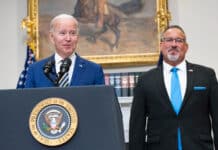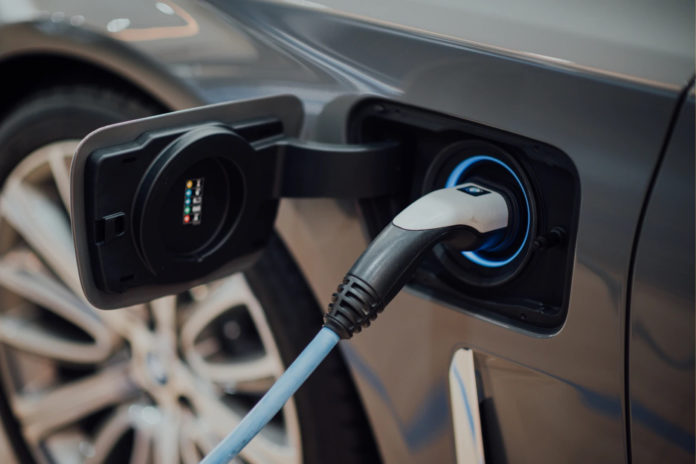(The Center Square) – On Wednesday, the Minnesota Automobile Dealers Association (MADA) filed a federal lawsuit aiming to stop Gov. Tim Walz’s administration from adopting California’s vehicle emission standards.
MADA, which represents 350 franchised new car dealers with more than 20,000 employees, alleges Minnesota lacks the authority under the Federal Clean Air Act to regulate motor vehicle emissions.
Walz’s administration decided to move forward with the plan in 2020 in an attempt to reduce greenhouse gas emissions and incentivize consumers to buy electric cars.
The new rules, if adopted, would impose California’s emission rules on all cars sold in Minnesota starting in 2025.
There’s two main regulations included: a zero emissions vehicle (ZEV) standard and a low emission vehicle (LEV) standard.
The LEV rule requires new automobiles sold to produce less pollution and greenhouse gas emissions, while the ZEV rule requires automakers provide more options for low- and zero-emission vehicles such as electric vehicles and plug-in hybrids.
However, automobile groups want to stomp the brakes, arguing the state doesn’t have that authority. They say the rules hurt consumers, especially the most cash-strapped who can’t afford more expensive cars.
MADA President Scott Lambert said he’s asked Walz’s administration and the Minnesota Pollution Control Agency (MPCA) to abandon their adoption of California rules and pursue initiatives that benefit the environment and consumers.
“Instead the agency has chosen to move forward with a plan that abdicates control to California and is harmful to Minnesota consumers and Main Street businesses across the state,” Lambert said in a statement.
MADA alleges that since the federal government revoked California’s waiver to create its own emissions standards, Minnesota has no authority to impose those standards onto its citizens.
“From the beginning, the MPCA has shown little understanding of how our industry operates and dismissed our concerns and good faith efforts to discuss other options,” Lambert said.
“Instead, the MPCA is hellbent on adopting California’s mandates, which will result in higher costs for consumers and fewer choices of product that consumers want to purchase. It threatens the ability of many dealers to stay in business. We were left with no choice but to bring our grievances to court,” Lambert said
Lambert instead asked Walz’s administration for a compromise.
“MADA remains committed to working on the emerging electric car market and will pursue legislation in the 2021 legislative session that promotes demand, more infrastructure, and education around these vehicles,” he said.
One way to boost fuel economy and reduce greenhouse gases is to make lighter vehicles.
But lighter vehicles are also more dangerous than heavy ones in wrecks, H. Sterling Burnett, a senior fellow on environmental policy at the Heartland Institute, previously told The Center Square.
Darin Broton, MPCA director of communications, told The Center Square the legislature set a bipartisan goal to reduce Minnesota’s greenhouse gas emissions by at least 80% by 2050.
“To help meet that goal, Minnesota has proposed clean car standards that reduce greenhouse gas emissions and give consumers more choices when purchasing electric and plug-in hybrid vehicles,” Broton wrote in an email.
“Minnesota’s proposed clean car standards for low emission vehicles have been used in all new cars, trucks and SUVs sold in Minnesota from 2012-2020 and already adopted in 14 states with Nevada and New Mexico also seeking adoption. Auto dealers in Minnesota have been successfully selling more stringent low-emission vehicles since 2012, and they can meet Minnesota’s proposed standards for years to come.”
However, electric cars have environmental damage tradeoffs.
While they don’t guzzle gas, a single Tesla requires seven kilograms of lithium for its battery pack, which requires an energy-intensive extraction from the brine of salt flats that can damage the environment and cause water shortages, such as in Chile’s Atacama and Argentina’s Salar de Hombre Muerto regions, Ronald J. Deibert explains in his book “Reset: Reclaiming the Internet for a Civil Society.”


















